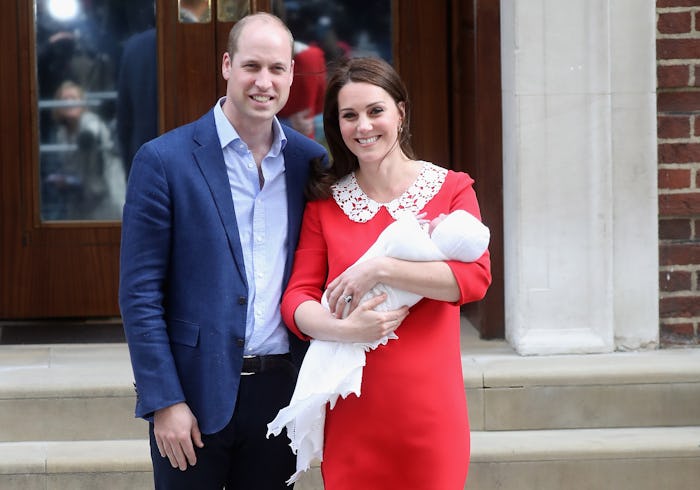News

Here's What We Know About The Royal Family's History Of Using Wet Nurses
These days, having a baby usually comes with the expectation that moms will at least attempt to breastfeed exclusively, yet as natural a practice as breastfeeding is, attitudes surrounding it have definitely varied throughout the years. Though royal moms don't often discuss things like the way they choose to feed their infants, at one point, the practice of using wet nurses (or having someone else nurse your baby for you) was common. Does the royal family still use wet nurses? That seems to have long gone out of fashion — although in some (non-royal) circles, it may actually be making a bit of a comeback.
Though Queen Elizabeth II's parenting style might be thought to have been markedly different from that of Diana, the Princess of Wales, or Catherine, the Duchess of Cambridge, The Guardian has noted that, actually, all three women are thought to have breastfed their babies. And in fact, the Queen herself is said to have been breastfed by the Queen Mother, Elizabeth Bowes-Lyon. That's something that wouldn't have sat well with the Queen's great-great-grandmother Queen Victoria, though: according to The Sun, the monarch was totally against the idea of breastfeeding her own children, and was said to be very upset that her own daughters chose to to take up breastfeeding when they became mothers themselves.
Though it's not known which of Queen Victoria's descendants did or did not breastfeed their babies, she was the last royal mother who actually employed a wet nurse to do the job for her (infant formula would have been available by the time Queen Victoria died in 1901, so later royal moms would have had other options). And though there were still some royals who found the notion of breastfeeding off-putting — Queen Elizabeth's sister, Princess Margaret, exclusively bottle-fed her children for that reason, according to The Sun, the Queen breastfeed all four of her children, even though she wasn't nearly as involved a mother in other aspects as future royal generations have become. Prince Charles, for example, was largely raised by his two nannies, Helen Lightbody and Mabel Anderson, according to Newsweek, and while it's hard to even imagine in this day and age, the Queen actually missed her son's first three birthdays because of royal obligations.
As old-fashioned as it might seem to consider that royal and high-society women once outsourced breastfeeding to other lactating women though, wet nursing has actually made somewhat of a comeback in recent years — although it does look pretty different now than it once did. These days, wet nursing seems to be more of an off-shoot of "milk sharing," which is when babies receive breast milk from other women, either privately or through a donor milk bank.
The practice of milk sharing can have significant health benefits for certain infant populations (premature babies, for example), and it also makes it possible for same-sex parents to have the option of providing their babies with breast milk. Yet, for some women, milk sharing is more like collective breastfeeding — informally nursing the children of relatives or friends in addition to their own — and a 2015 survey of British mothers by the parenting site Netmums found that, actually, one in 25 British women are nursing other people's children, according to The Express.
That's quite different from the days of Queen Victoria and her team of wet nurses, but it's also still possible to hire someone to breastfeed your child directly if you want to go down that route: milk sharing websites like Only The Breast also allow breastfeeding women to post ads offering their services, either to make extra money, or to help out babies and families in need.
In other words, the days of royal moms handing their babies off to wet nurses may be long gone, but that doesn't necessarily mean that wet nurses are actually a thing of the past. The difference though, it seems, is that while wet nursing was once seen as outsourcing an undesirable task (or at least one that may not have seemed socially acceptable), modern wet nursing is seen as a preferable option to using formula for parents who are unable to breastfeed exclusively themselves. And though wet nursing doesn't exactly seem like it will become popular enough to pose a threat to formula manufacturers, the practice definitely didn't die out with the Queen's royal ancestors.